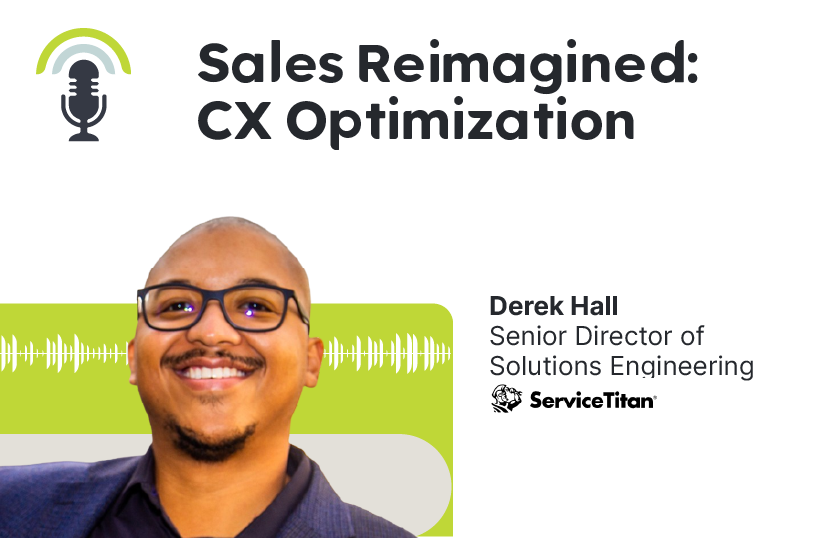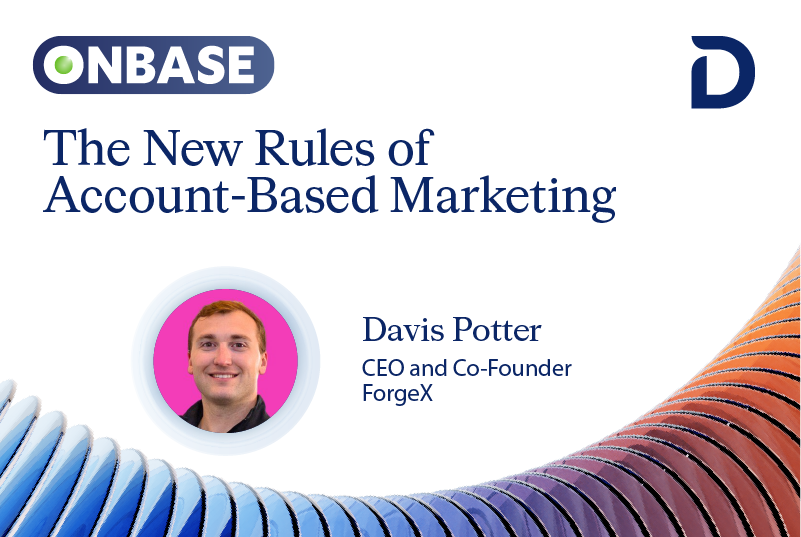
Evolving from Digital Lead Gen to Demand Gen
Shownotes
In today’s episode, we’re talking to Natalie Jackson from CBIZ about demand generation. Listen as she discusses how important it is for marketers to understand how a CRM system is architected and to be able to speak the language of the software to sell its story. She also mentions that sales teams must not be treated like data entry people and that respect is key when working with them. Finally, she suggests marketers understand further how a CRM system works and sell its story. Tune in!
About the Guest
Natalie Jackson is the Director of Demand Generation at CBIZ and co-host of the podcast Humans of Email. She has 12+ years of experience in B2B marketing, demand generation, email strategy, and digital. Natalie has spoken at (and for) MarketingProfs, Really Good Emails, Digital Summits, and CRMUG Summit, as well as for dozens of email webinars and local marketing events. You can catch her this September at Dreamforce as well.
Key Takeaways
- In B2B, email is critical for the buyer’s journey and establishing trust and credibility. To navigate that balance, email should be personalized to add value at the right point.
- Marketers must understand the data architecture of their CRM systems and be able to speak the language. Doing so helps with customer interactions.
- Marketing and sales teams should be prepared for economic volatility, as it can impact their ability to generate new business.
Quote
“Where I think though people go wrong with email is, in B2B, in particular…we got so excited about email… We oftentimes don’t email appropriately. We don’t email when it’s adding value to the recipient. Instead, B2B tends to email when it’s adding value to the sales team, the company, or the marketing strategy… Stop and ask yourself before you send it, am I adding value to the person I’m sending this to? ”
– Natalie Jackson
Highlights from the Episode
Can you tell us about your journey?
Natalie started creating content after graduating Master of Fine Arts in Creative Writing. Being in the middle of the great recession, she learned marketing through quick learning. This led her to discover how marketing is about storytelling – mapping out the narrative of the buying journey. And just like creative writing, the goal is to keep the audience interested in the story.
In your own words, what’s the difference between lead gen and demand gen?
In digital lead generation, the idea is that all it takes is the right message in front of the right person at the right moment and that the customer will already engage in the business. However, buyers have become more sophisticated. Right now, marketing is transforming, and B2B marketers have to think of the long game. According to a study, only 5% of your target market is in the market to buy. If you are only focused on this 5%, which is digital lead generation, you are missing the other 95%. This is where demand generation comes into play. It is all about influence.
Email is a vital part of a demand gen strategy. What are people overlooking with email in B2B?
An email is a relationship tool. It is helping marketers to continue and build on a relationship. According to data, leads generated elsewhere are audiences not ready to buy yet. Frequently, email is the most effective channel for conversion. In B2B, email is a critical mechanism for establishing trust and credibility. What can go wrong is not knowing how to email appropriately. Marketers should email when it adds value to the recipient, not only when it adds value to the company. The key is to stop and ask yourself – Am I adding value to the person I am sending this to?
How can teams best utilize email to build relationships?
It is all about displaying empathy. The two challenges for B2B email marketers in personalizing are not having the correct data or technological hurdles. With this, marketers should start with their available data and engage with the buyer. The Marketing-Qualified Lead is an opportunity to lay out a relationship-building touch. It is not always about being proactive with your data but also being reactive to what the audience is telling you. Marketers will eventually need to insert themselves into the data architecture conversation for their CRM system and consider the way for the sales team to input minimal data. Remember that the sales team’s job is not to enter data. They are revenue generators.
What are some things you can do without buying new technology? (Have a running tally of things that don’t cost money.) What is your tally?
Most of the ways to drive up demand without spending extra cost can be found in the data in the CRM system. Digital lead generation is built with the one-in, one-out flat database, telling what gets qualified or disqualified. However, that is not how buyers work. This translates to lost opportunities. The key is to get familiar with the CRM system, its data, and how the data is architected.
How are you and your organization adapting to the current economic downturn?
Natalie entered the marketing space during the great recession, and this helped her be strategic in gaining as much revenue and opportunity out of a budget as possible. Money has to be spent. Realize the demand generated from the existing database and do not let it go to waste. Think about your CRM as a living, breathing ecosystem. The key is to stay nimble – volatility will always happen.
Is there a book, blog, newsletter, website, or video that you would recommend to our listeners?
- https://www.cbiz.com/
- Humans of Email Podcast
- https://reallygoodemails.com/
- https://www.emailgeeks.com/
Shout-outs
Jen Capstraw – Women of Email Co-Founder
Samantha Bush – Marketing Programs Manager at FloQast
Nout Boctor-Smith – Senior Manager, Revenue Marketing Campaigns at LaunchDarkly
Related content
We have updated our Privacy Notice. Please click here for details.


